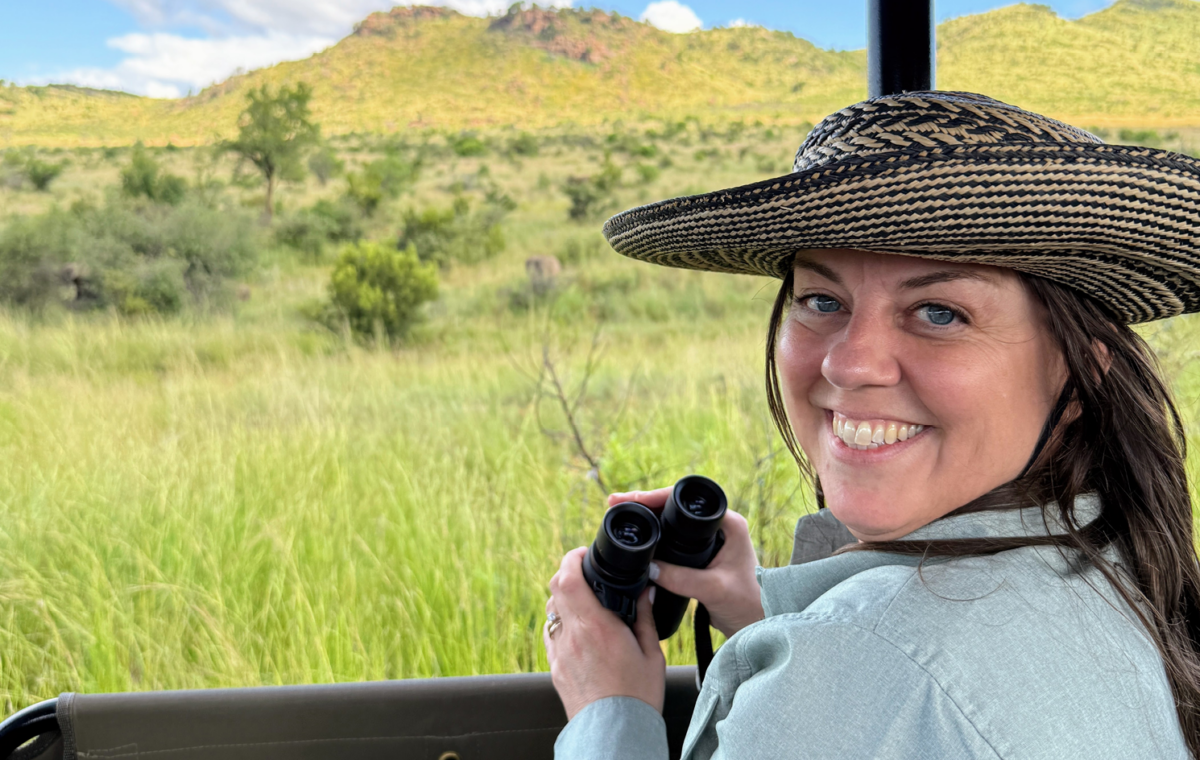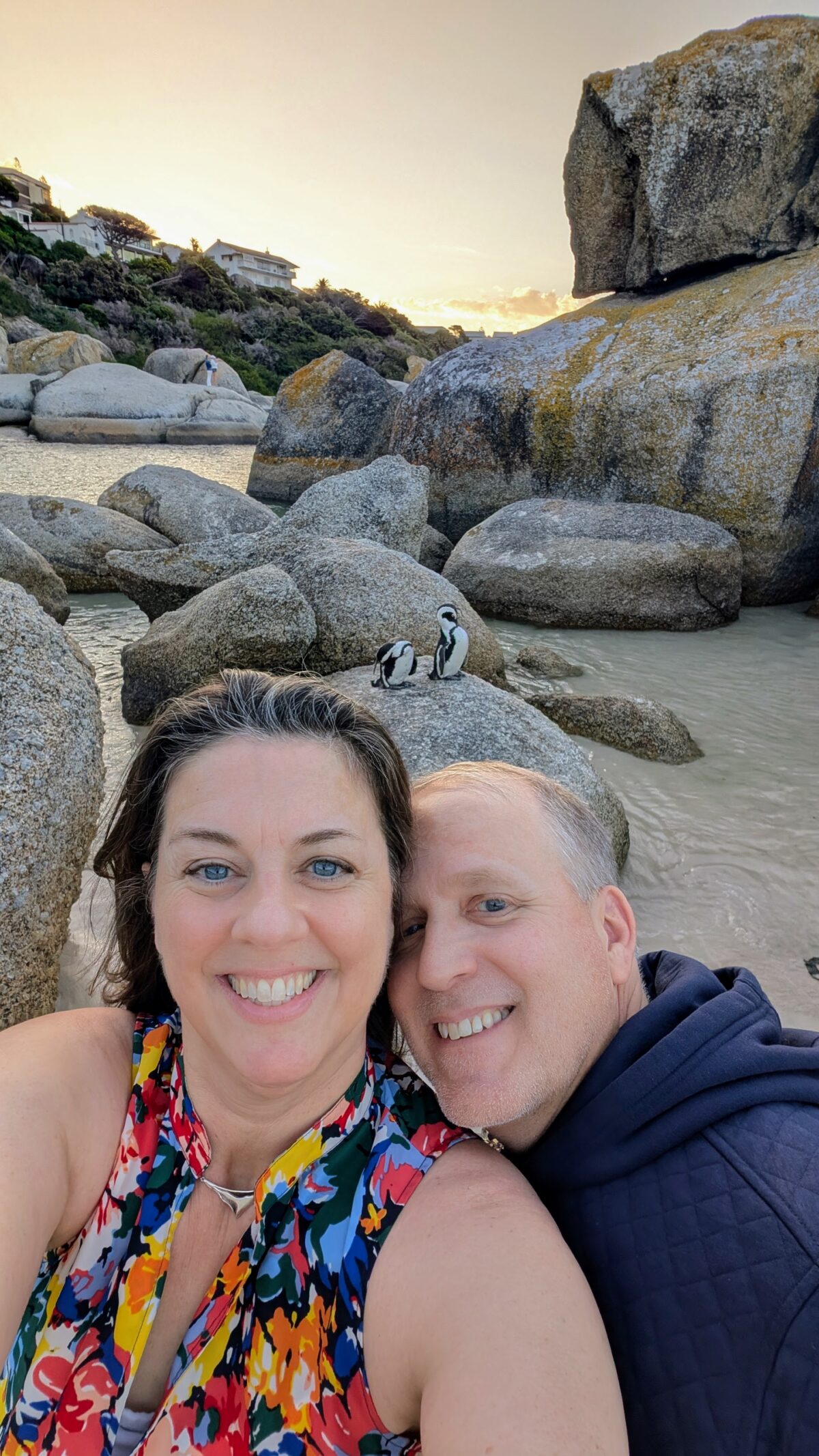BAF Changemaker: Sarah Jean Willett

Sarah Jean Willett from Farmington, Connecticut on a safari in South Africa – “Living her Best Life!”
Sarah Jean Willett from Farmington, Connecticut, survived a ruptured brain aneurysm in 2019 with no prior warning signs. Her experience sparked a passion for advocacy, leading her to support the Brain Aneurysm Foundation through fundraisers and awareness events. Today, Sarah is dedicated to sharing her story, raising awareness about the hidden struggles of recovery, and supporting research that could save lives.
BAF: Tell us a little about your connection with brain aneurysms.
SJW: I survived a ruptured aneurysm in June 2019. I had no prior symptoms. No warning signs leading up to the event. When it happened, I was on top of a roof, cleaning off debris. Fortunately, I remained conscious throughout, and my husband was able to help me off the roof and get me to the hospital a few miles away. Within 41 minutes of the onset of symptoms, I was diagnosed with a subarachnoid hemorrhage and began treatment. The next morning, I had an endovascular coil placed and was released from the hospital 17 days later.

BAF: When did you first learn about the BAF?
SJW: I received information about BAF when I was discharged from the hospital. I held my first “Stop the Pop” fundraiser for my 47th birthday in September of 2019, a few months into my recovery. I had another one a few years later, and this year, I participated in my first Brain Aneurysm Foundation Walk in Connecticut and raised almost $4000.

BAF: Why is it important for you to be an advocate for the BAF community?
SJW: Looking at me now (or then!), you would never have known what was happening inside my body. But now that I have experienced this, and my brain has been restored to its former health, I have a new appreciation for what other people might be experiencing.

“I want to help others understand the aspects of recovery that are most difficult for survivors to communicate.”
During my recovery, every sound felt amplified—dishes clinking or spoons tapping sent me into sensory overdrive. I wore noise-cancelling headphones just to cope. Bright light was unbearable, and car rides overwhelmed my peripheral vision, forcing me to look down. A strange, persistent scent lingered for months—one only I could detect.
I missed the sharp thinking I once had, now replaced by a brain that could only manage simple conversations and single thoughts. Multitasking became impossible. Determined to retrain my brain, I turned to puzzles and brain games, slowly working on memory, attention, and reasoning—one slow step at a time.
The Brain Aneurysm Foundation shares survivor stories, raises awareness, and funds research. Your donation could help scientists like Holly Berns, MS, who is studying different genetic risk factors that may improve cerebral aneurysm screening and early detection. Her research, along with that of other grant recipients, may be the key to preventing brain aneurysm ruptures and saving lives.


 Brain Aneurysm Foundation
Brain Aneurysm Foundation